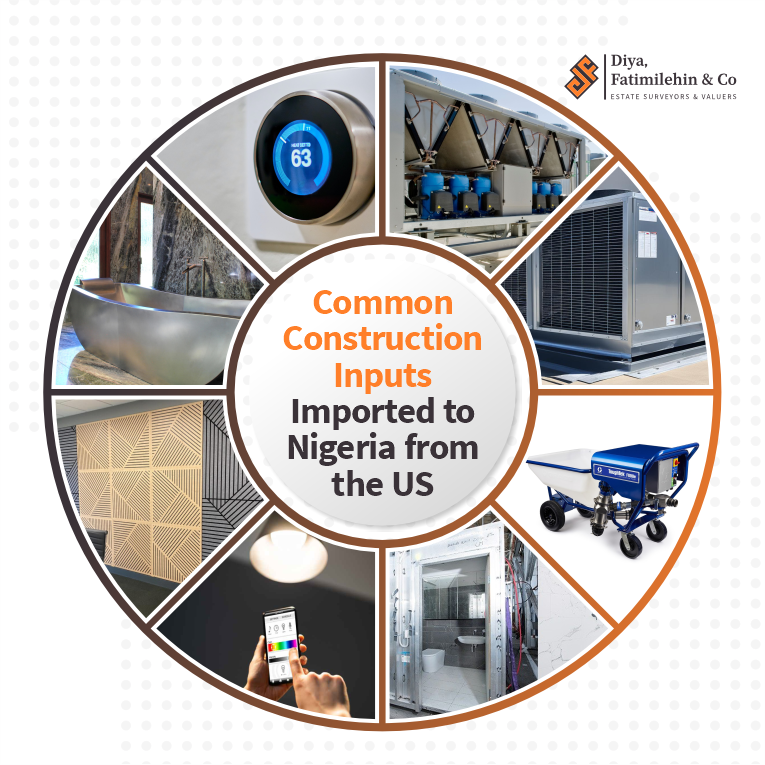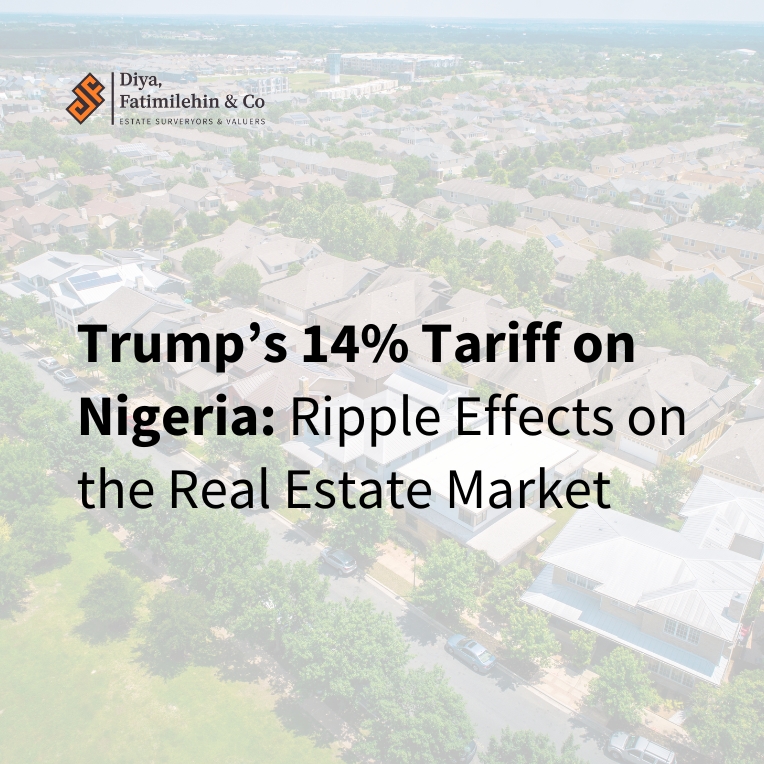In the wake of President Trump’s announcement of a universal 10% baseline tariff on all imports into the United States, many countries, particularly across the Global South, were thrown into a state of economic uncertainty. Nigeria, facing a 14% reciprocal tariff on its non-oil exports to the US, finds itself exposed to the ripple effects of this tariff hike. The situation is further complicated as Nigeria’s alignment with the BRICS bloc, which is considered antagonistic to US interests, may attract an additional 10% tariff penalty. If implemented, this may likely weaken Nigeria’s export competitiveness and foreign exchange liquidity, further raising capital costs for trade and allied sectors.
The timing could hardly be worse for Nigeria’s real estate and construction sectors. Over 70% of the country’s building materials are imported, with a heavy reliance on China, which is now at the forefront of the global tariff war, alongside European suppliers such as Spain and Italy for tiles and Turkey for wardrobes and lighting fittings. The United States also serves as Nigeria’s primary source for advanced security infrastructure, from CCTV systems and video doorbells to fire alarms and access control solutions.
From structural elements such as iron and steel to fixtures and fittings, including solar panels, smart home technologies, and HVAC systems, Nigeria’s built sector is tied to global supply chains, which are now tightening, as tariff shocks are likely to translate directly into higher material costs. These cost escalations may put pressure on housing affordability, delay project timelines, and dampen developer confidence in an already fragile market.

This combination of headwinds is particularly troubling in a country where homeownership hovers around 25%, and mortgage penetration is scraping below 5%, according to the Mortgage Bankers Association of Nigeria (MBAN). With inflation rising and interest rates at double digits, the unit price of homes is becoming prohibitive for the middle class. Developers, already constrained by increasing import costs and a shrinking pool of buyers, may be compelled to scale back or defer new projects.
Diaspora capital, a key funding channel for the built sector, may also come under pressure. In recent years, Nigerians abroad have leveraged currency depreciation as an investment opportunity, channelling funds into home construction, land purchases, and off-plan investments. In 2024, remittances reached a 5-year high of $20.98Bn, with an estimated 40% – 45% originating from the United States alone, and a sizeable chunk directed at real estate. Analysts estimate that 50% – 60% of property sales originate from diaspora investors, a trend the Nigerians in Diaspora Commission (NIDCOM) has acknowledged in its own assessments. But as global trade tensions strain key employment sectors abroad, disposable incomes may thin out, particularly for diaspora Nigerians in logistics, construction, or export-facing businesses in China and the US. This downturn could compress developer margins and threaten project viability, particularly those heavily reliant on diaspora presales.
Amidst these risks lies a potential silver lining – the chance to localise. The current tariff hike may well serve as the much-needed wake-up call that Nigeria’s built sector has long needed. A deliberate shift towards the domestic production of building materials from steel and gypsum boards to glass and ceramics, and other allied materials, could rein in construction costs and accelerate housing delivery at more affordable price points. Unlocking this opportunity, however, will require the coordination of policies around tax incentives to bolster local manufacturing, as well as tailored public-private partnerships and long-term investments in vocational and technical education aimed at cultivating a skilled labor force for the construction value chain.

